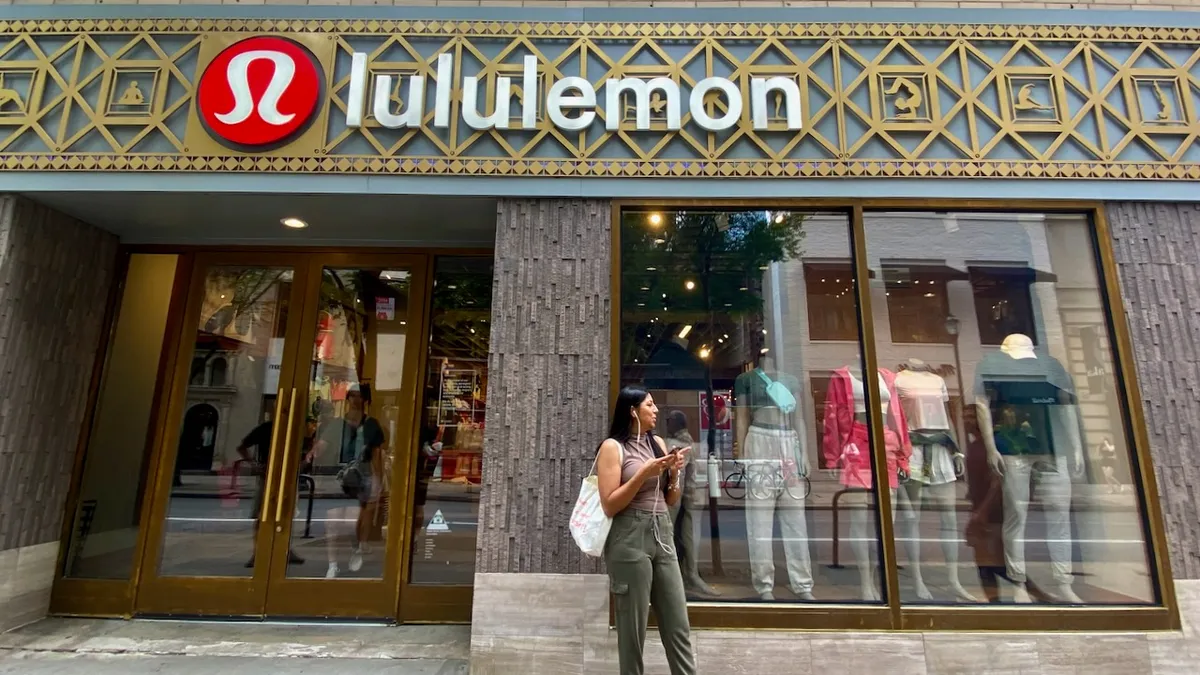Editor's note: This story is part of the Marketing Dive Outlook on 2021, a series on the trends that will shape the industry in 2021. For a look at the business trends affecting other industries, see the Dive Outlook on 2021.
One year after announcing plans to kill third-party cookies, Google last week revealed the latest development from its Privacy Sandbox project to build a more private web. The tech giant said that with its Federated Learning of Cohorts (FLoC) technology, advertisers can expect to see at least 95% of the conversions per dollar spent that they currently get with cookie-based advertising. But while the high marks are a hopeful sign for advertisers looking toward a cookieless future, concerns remain about how FLoC and other solutions will change the targeting and measurement of digital advertising.
"Google shared little information about how they achieved that 95% number," said Chris Paquette, founder and CEO at healthcare demand-side platform DeepIntent. "We're talking about such a serious change to the way marketers will be able to target. It just needs to be independently validated by third parties."
As opposed to third-party cookies, FLoC creates a lookalike audience that protects privacy by using machine learning algorithms to process web browsing behavior on individuals' devices. The way FLoC works is analogous to how many data providers use third-party cookies in aggregating various data sources to build audiences, but with typical third-party data, marketers have direct insight into the sources that are being used to build the audiences. Google's 95% effectiveness statistic makes it clear that inefficiencies and waste are inherent in cohort-based advertising like FLoC, drawbacks that may be necessary in the trade-off for privacy.
"There's no way it's going to be as precise as third-party-based retargeting or deterministic targeting," Paquette said.
However, early results from FLoC and related moves Google has made to incorporate industry feedback into Privacy Sandbox are promising for ad world players seeking efficient targeting capabilities after the death of third-party cookies, according to Michael Schoen, senior vice president and general manager of marketing solutions at Neustar.
"For most of our marketers, they're going to continue targeting in a variety of different ways, some of which will continue to use other identifiers. But as a kind of catch-all for consumers who are using the Chrome browser, [FLoC] certainly provides an effective way of reaching those consumers at scale," Schoen said.
Challenges remain, with time still on the clock
The transition from third-party cookies to solutions like FLoC will also affect measurement and analytics. As part of the Privacy Sandbox, Google has said it will provide a click-through attribution solution to support measurement while preserving privacy. However, this only encompasses a small part of the marketing picture as ad click-throughs are not effective at measuring the impact of video, banner and social ads, or the impact of multichannel campaigns that expose consumers to a campaign in several ways.
"Misattribution is the downfall of some of the most simplistic measurement techniques," Schoen said.
Still, Google has signaled that it recognizes that measurement beyond click-through attribution is required by marketers, and Schoen expects Google to work with the World Wide Web consortium (W3C) working groups to coalesce around a proposal. (Neustar, where Schoen works, last year introduced a proposal to the Privacy Sandbox for PeLICAn, short for Private Learning and Interference for Causal Attribution, calling for privacy-preserving, view-based attribution.)
When Google announced its plans to eliminate third-party cookies at the start of 2020, it set a tentative two-year deadline that is fast approaching. Throughout the process, Google has made it clear that it won't restrict cookies until there are alternative solutions in place that satisfy marketers and ad-tech providers. The deadline and timeline has been helpful in getting participants motivated, Paquette said.
"There's no way it's going to be as precise as third-party-based retargeting or deterministic targeting."

Chris Paquette
Founder and CEO, DeepIntent
"Independent ad tech companies are coming together in those second-party data consortiums. We are rising to meet the demands of the consumer — which is better privacy and better management of consent — and I think that those solutions are going to be a net gain for the industry across the board," he explained.
Schoen said some of these solutions should be available as APIs in the "early summer" timeframe, giving marketers time for piloting and testing. But that process will likely be affected not just by the continuing effects of the pandemic on the ad market but also the pressures around the holiday season.
"From a technical perspective, I expect many of the industry players to be ready. It's really about marketers getting crunched and their willingness and availability for piloting," Schoen said.
A changing landscape for privacy — and antitrust
Google's FLoC is just one part of the changing data privacy landscape. Along with the end of third-party cookies, changes to identifiers like Apple's Identifier for Advertisers (IDFA), and regulations including the EU's Global Data Protection Regulation (GDPR), California Consumer Privacy Act (CCPA) and California's Prop 24 have made collecting and storing first-party data a top priority for marketers in 2021.
"Within that Chrome Privacy Sandbox, there are solutions that allow [marketers] to still activate and target users off of the first-party data that they're collecting. There still are other proposals that will enable them to do that more granular addressable-type targeting without FLoC," DeepIntent's Paquette said.
"The best platforms that are going to emerge out of this least unscathed are going to be the ones that are approaching this with a best-of-breed approach, a multiple solutions approach," he added. "The combination of all of the different solutions will force technology partners, specifically DSPs, to get very ambidextrous."
The deprecation of third-party cookies is happening as Google faces a federal antitrust suit alleging outsized control of the online search market and calling the company's practices "anticompetitive and exclusionary." The antitrust spotlight will make it less likely that Google can move forward without the support of independent ad-tech platforms.
"If they were to single-handedly just wipe out a $150 billion market ... that really wouldn't look good for their case. They need to definitely tread lightly and work with the industry to to come up with a feasible and viable replacement," Paquette said.
Correction: A previous version of this story misquoted Michael Schoen on the effects of changes to measurement techniques. The story has been updated.























